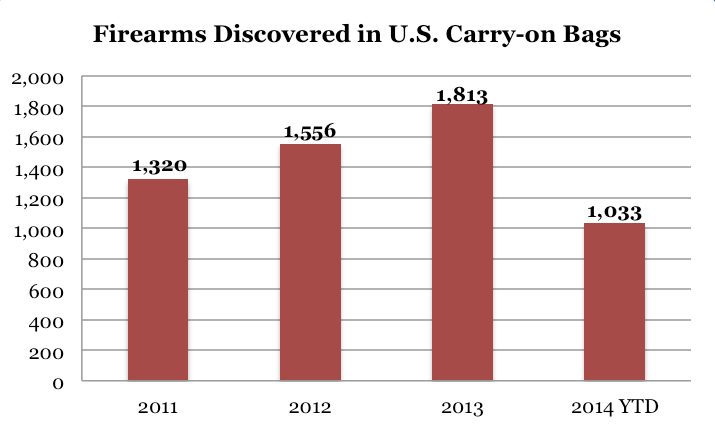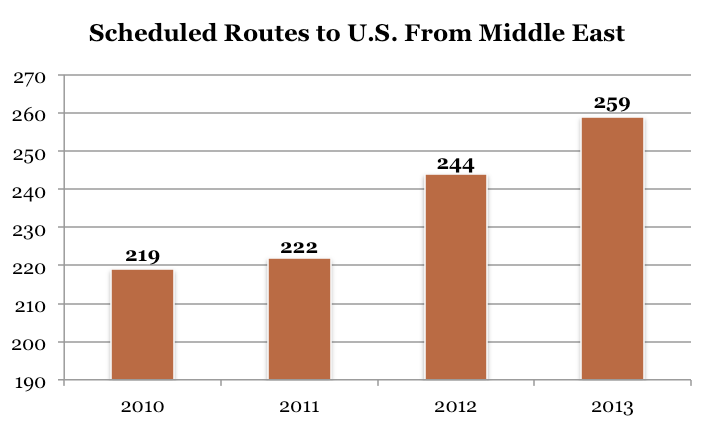Though the TSA recently outlined new security measures on U.S.-bound flights, the agency’s decision to target cell phones raises several questions about the policy’s specificity and effectiveness.
Apple iPhones and Samsung Galaxy phones were singled out for extra scrutiny, U.S. officials told Reuters, though Secretary of Homeland Security Jeh Johnson does not specifically name the two smartphones in TSA’s official statement. A Department of Homeland Security (DHS) official emphasized to TIME that the search will cover a wide range of electronic devices, and the inspection of items will be “not just focused on two manufacturers.”
Aviation and terrorism experts agree that if Apple and Samsung phones will indeed be checked more closely, then that decision is based on specific information gathered by U.S. intelligence.
“Somewhere, somehow, somebody has recovered those devices by those names, which were probably used in the process of developing an explosive that would be detonated by the use of one of those, or [U.S. officials] have first hand intelligence information,” said Glen Winn, an aviation security expert who has handled bomb threats.
R. John Hansman, Professor of Aeronautics and Astronautics at MIT, added that most likely “there’s not anything particularly unique about Samsung [Galaxy] or iPhones in terms of their technology.”
TSA has previously expressed fears that al Qaeda in the Arabian Peninsula (AQAP) may be targeting U.S.-bound planes. Suspicions grew in 2010 when two bombs capable of bringing down an airplane were discovered on a U.S.-bound cargo plane. The explosives were to be detonated by cell phone, and also contained parts of mobile phones’ electrical wiring.
The DHS official declined to comment on the specifics of TSA’s decision to ask passengers to turn on cell phones, though experts agree that asking travelers to power up phones will show “if the phone that the person has is in fact a phone,” Winn said.
What is available, however, are TSA’s public reports, which indicate that mobile phone-related seizures at U.S. airports are rare, and that most confiscations are not of improvised explosive devices. So far in 2014 TSA has cited five incidents of “cell phone” confiscation at U.S. international airports, and one incident at a U.S. airport with only domestic flights. Five seizures were stun guns disguised as phones, and one was a phone with a knife hidden inside it. None resemble any of the iPhone or Samsung Galaxy models.
More readily available indicators of rising dangers — for example, TSA’s data regarding discovery of firearms in U.S. carry-on bags — suggest that the number attempted in-air threats may be increasing.
Discovered firearms shot up by 37% from 1,320 in 2011 to 1,813 in 2013, even though TSA’s no-weapon rules have became increasingly publicized, and the intensity of TSA’s carry-on security checks remained mostly stable. (The most salient change, the Precheck Program launched in October 2011, actually relaxed and streamlined security.) As of July 3, 1,033 firearms have already been discovered in 2014.

Additionally, 84% of the firearms discovered this year were loaded. Proportions of loaded discovered firearms remain high, ranging from 74% in the first week of 2014, to 95% the week ending on Friday, April 18, with a slight positive trend. The steady increase of firearm discovery questions whether or not TSA’s new policy will deter travelers from attempting to bring explosives on board.
Data also show that since 2010 the number of round-trip flight segments connecting the Middle East, where AQAP is mostly active, and the U.S. has increased. Meanwhile, the total number of international routes scheduled for U.S. airports has decreased to 17,703 in 2013 from 17,943 in 2011.

Still, though a rise in the risk of cell phone threats is debatable, experts agree that the danger is nonetheless present. “We know that cell phones and electronic devices have been used to set off bombs,” Winn said. “That’s not a mystery. That’s a fact.”
More Must-Reads from TIME
- Cybersecurity Experts Are Sounding the Alarm on DOGE
- Meet the 2025 Women of the Year
- The Harsh Truth About Disability Inclusion
- Why Do More Young Adults Have Cancer?
- Colman Domingo Leads With Radical Love
- How to Get Better at Doing Things Alone
- Michelle Zauner Stares Down the Darkness
Contact us at letters@time.com